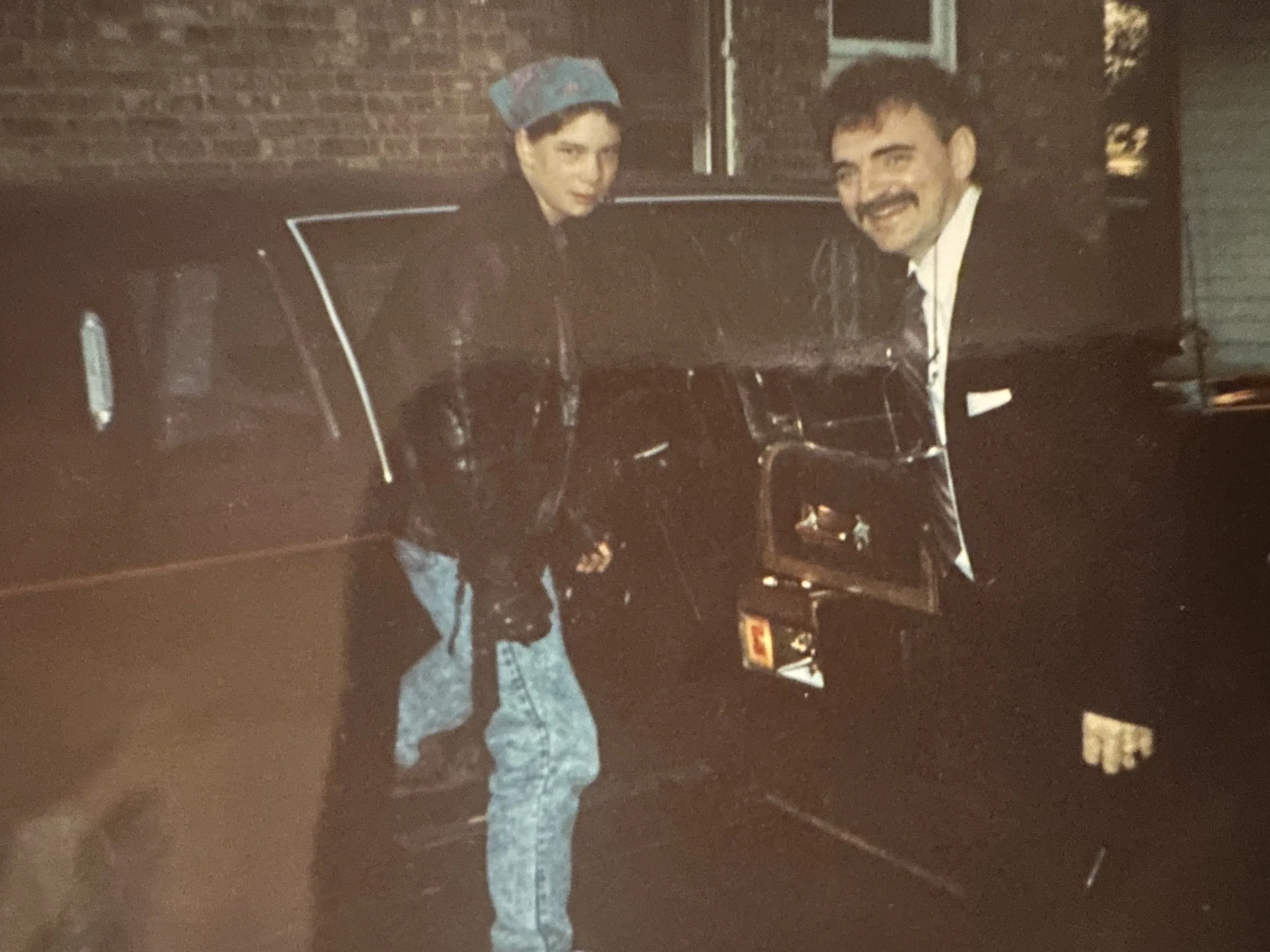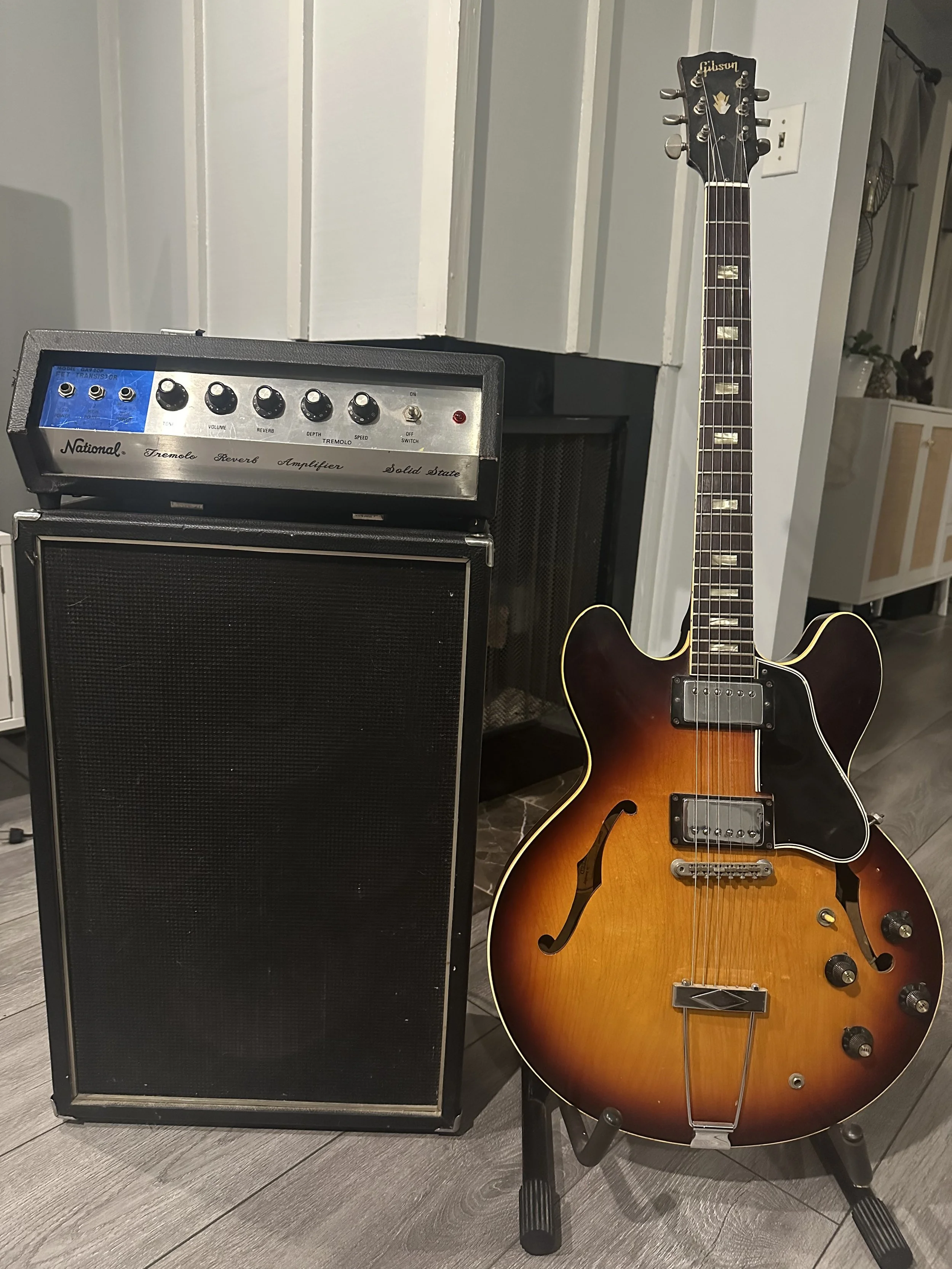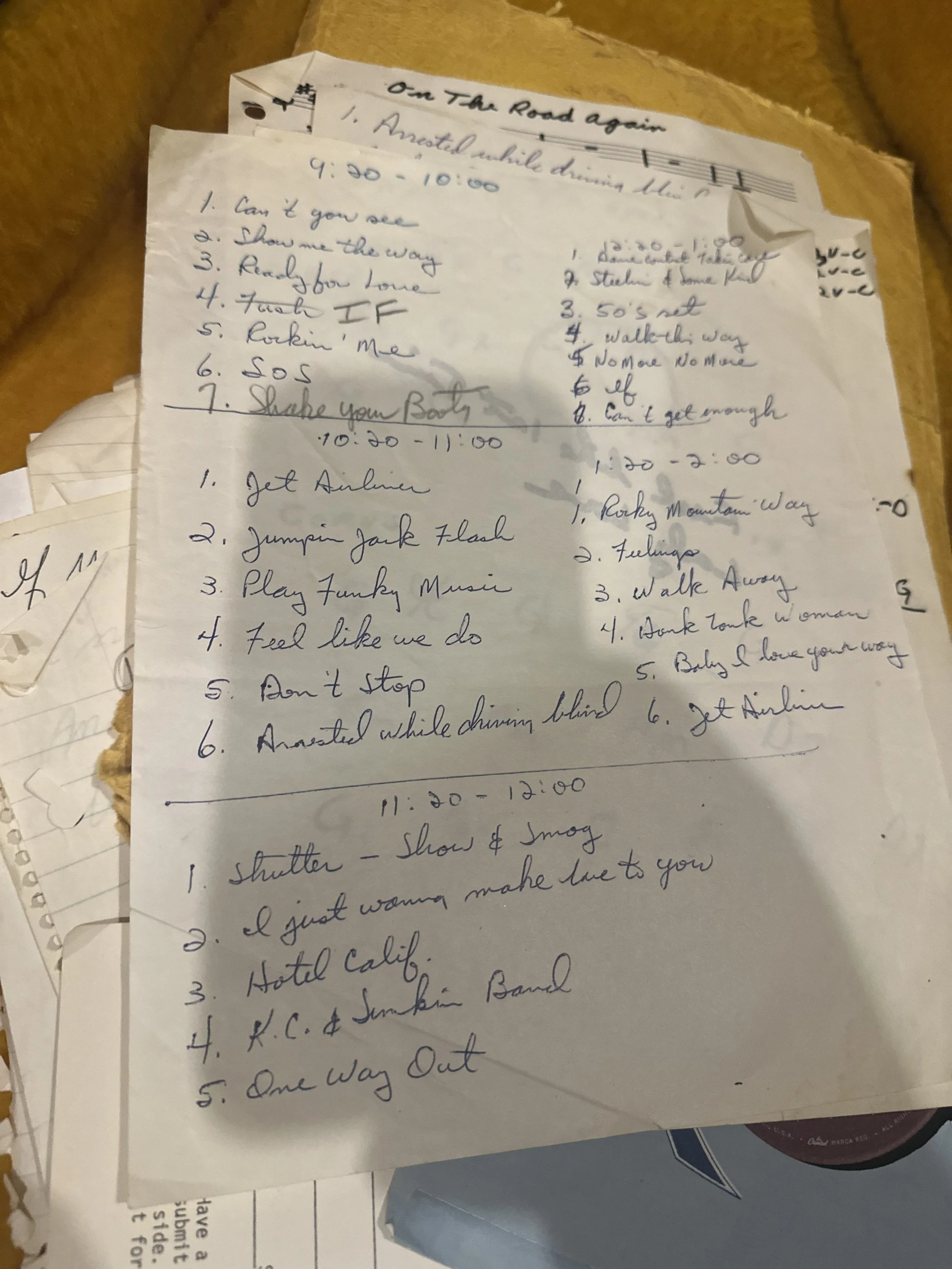The First Time Music Was Magic (A Eulogy)
by Jason Patera
April 4, 2025
I was seven years old when I first learned how powerful music could be.
My best friend Brian and I spent a lot of time in each other’s houses: our backyards abutted, so no one seemed concerned about safety. (Also, it was the 80’s, so no one seemed concerned about safety.)
Our Stickney houses were basically identical, each with a mostly unfinished basement crammed with stuff that wasn’t allowed upstairs. Mine had my mom’s crafts, my dad’s shotguns, and my grandpa’s 1950’s Playboys (which I didn’t discover until much later). Brian’s basement had a bunch of 8-tracks, and a pool table that was so cool I didn’t notice much else.
We were screwing around with the cues one day when “Brian’s Dad” (I addressed him that way; I would have never called him “Bob”) appeared on the stairs to show us something. He pulled out a guitar, a Gibson 355 semi-hollowbody, and turned on an old amplifier I hadn’t seen before. The amp crackled as he plugged in, electricity in the air.
He started strumming. Then, he sang:
I'm gonna take a freight train
Down at the station, Lord
I don't care where it goes
I was transfixed, absolutely enchanted. I had never seen someone play an instrument or sing so up close before, and I knew I was witnessing a miracle.
I understood that life, from then on, would be different.
Not too long after that, Brian got his own guitar, and I started learning the drums. Years later, Bob worked as a limo driver, and he’d chauffeur Brian and me to our gigs. Like my dad, he not only believed in the power of music, but the power of dreams (and the importance of looking the part!)
Bob passed away on Sunday, on his birthday, at the age of 78. I just did the math: that day on the basement staircase, he was only 36 years old — nearly 14 years younger than I am now — and I have thought about and loved music every single day in the 42 years since.
Somewhere in there, I hope I’ve touched someone’s life the way he did ours.
Rest easy, old friend.
Me getting out of Bob’s limo in 1990. (Brian says it was Halloween. I sure hope that’s true.)
In 1983, Bob’s “vintage” Gibson would have been 18 years old. As I write this, Nirvana’s Nevermind is 34 years old. That’s some ugly math.
Brian found some of his dad’s old set lists in the guitar case. Bob’s band opened that night with Can’t You See and closed with Jet Airliner.


